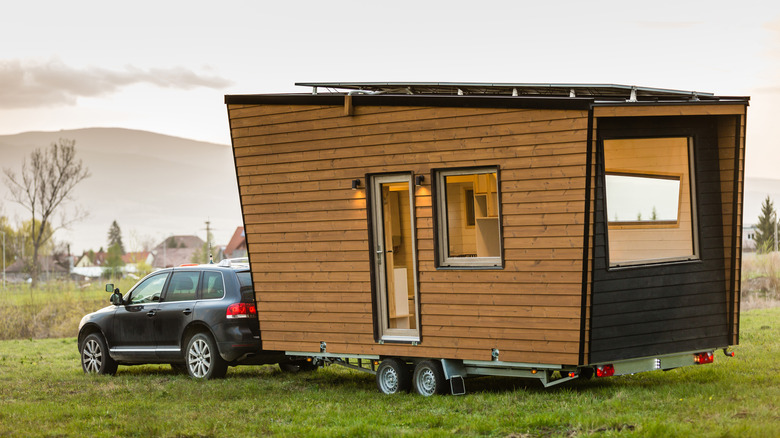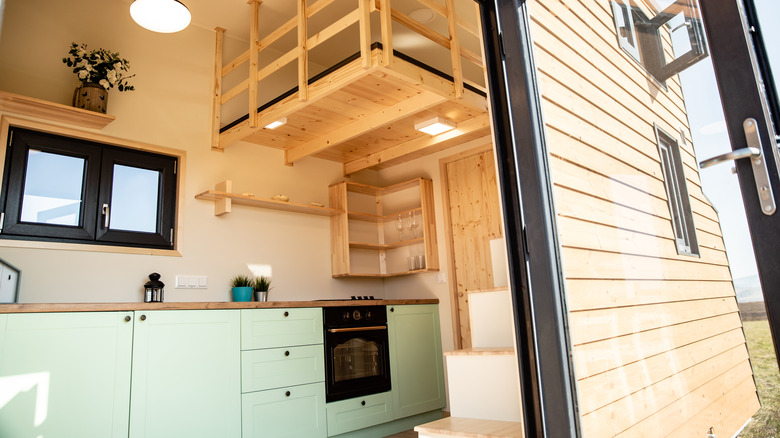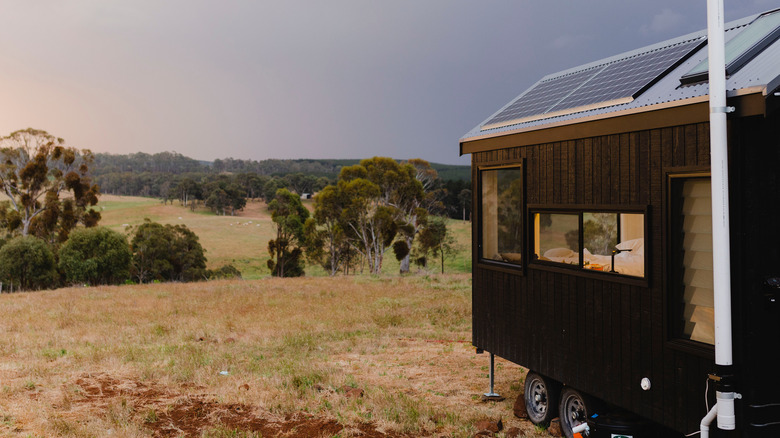Is Living In A Tiny House Really Cheaper?
With the rising cost of homes, tiny houses have never been more appealing. Shows like the Netflix original "Tiny House Nation" glamorize these less than 500-square-foot homes, which has led to a movement of people searching for their own minute properties. Additionally, there are a number of benefits to living in a tiny home. PODS says that, while you'll have to greatly downsize your belongings, a smaller home will allow you to live a more simplistic lifestyle. Owning a more compact living space may also force you to finally get organized, because you won't be able to hide away your clutter. Further, it allows for more freedom and easier travel, since many of these homes are mobile.
Many also claim that living in a tiny house is cheaper than living in a typical-sized home. Perhaps you've heard this and wondered if it was actually true. If so, you'll find the answer below.
Can you save money by living in a tiny house?
Put simply, yes, living in a tiny house is cheaper than living in a typical-sized home. The savings begin as soon as the home is bought or built, as the average cost of a tiny home is around $50,000, per CNBC, and could even cost less than $10,000. This is significantly lower than a full-sized home, which on average costs over $428,000 in the United States, per The Ascent. However, while these smaller homes cost less overall, the square footage of a tiny home typically costs more; CNBC says that tiny homeowners spend 62% more per square foot.
Additionally, Insider shares that many tiny home dwellers actually spend a lot less on general expenses — they typically spend around $1,000 per month. This is because, as Investopedia points out, since the space is significantly smaller, heating and cooling bills will be less. And, since these homes have smaller appliances, less money will be put toward electricity, too.
Other costs to consider
However, if you are considering purchasing a tiny home, there are additional costs you'll need to consider. For instance, according to CNBC, you'll need to think about the insurance costs in your state. Those who live in places where natural disasters occur often will most likely spend more on their home insurance. Further, if you're building a tiny home, keep in mind that the price of supplies and lumber has significantly increased.
Rocket Mortgage says to also consider a state's zoning laws, as you may end up spending quite a bit of money in fines if you don't. Another consideration is your small house's resale value. Because most tiny homes are customized to the owner and only appeal to a select number of people, they can be difficult to sell.
Finally, the best way to buy a tiny home is with cash, as you can't pay a mortgage like a regular home, per Investopedia. If you can't pay the total cost upfront, you may have to take out a personal loan, which will probably have a higher interest rate than a mortgage would.


